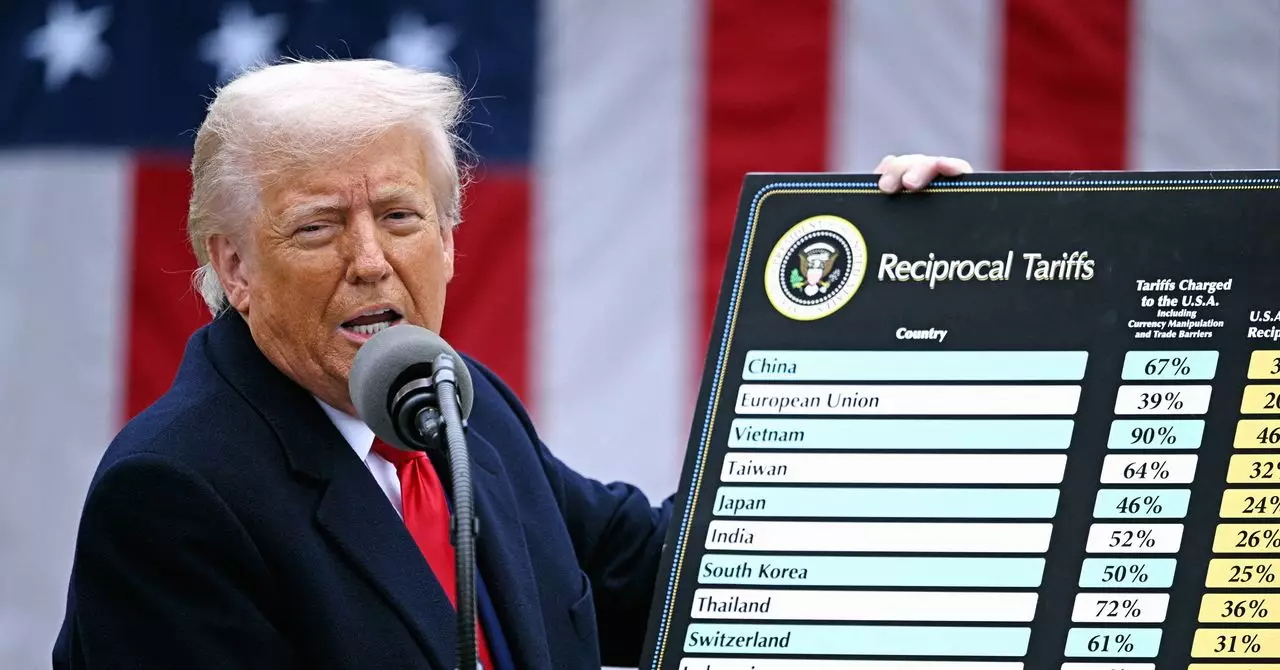The de minimis exemption, a regulatory provision that allows goods valued below a certain threshold to enter a country without incurring import duties, has turned out to be a game-changer for e-commerce, particularly for companies like Shein and Temu. These Chinese retail giants have strategically exploited this loophole to flood the U.S. market with inexpensive products, which has allowed American consumers to enjoy a vast array of affordable goods. However, the implications of this exemption extend far beyond these two companies; they resonate through platforms like eBay and Etsy, where U.S. buyers frequently purchase items from Chinese sellers. If the exemption were to vanish, it wouldn’t just affect international giants but would send shockwaves through the entire e-commerce ecosystem.
The debate surrounding the potential repeal of the de minimis exemption is intensifying as stakeholders weigh its consequences. President Trump’s recent moves suggested scrapping this essential policy appears to be less about economic strategy and more about leveraging trade negotiations with China. Leveraging such a significant measure risks transforming traditional shopping paradigms into a labyrinth of tariffs and regulations that could stifle the very vibrancy that defines e-commerce.
The U.S. Trade Landscape in Flux
The landscape of trade is notoriously volatile, and the threat to the de minimis exemption exemplifies this instability. In February, Trump attempted to eliminate this measure via an executive order but quickly rescinded his plans after realizing the impracticality of monitoring millions of additional shipments daily, a reality that U.S. Customs and Border Protection (CBP) was ill-equipped to manage. Despite the retraction, the looming May 2 deadline for the exemption’s potential demise casts a lingering uncertainty over businesses and consumers alike.
Renowned figures like Ram Ben Tzion, CEO of Publican, argue that the consequences of removing this exemption could be profound. The shake-up would not only cripple the current momentum for low-cost imports but would fundamentally reshape online shopping behaviors in the U.S. A shift toward heightened tariffs would likely narrow consumer choices and inflate prices across the board, altering the competitive landscape significantly.
Opportunities Amidst Adversity
Interestingly, not all entities view the potential repeal of the de minimis exemption as purely detrimental. Some companies prudent in the face of uncertainty are pivoting to seize advantages from evolving trade policies. For example, defense contractor Palantir quickly promoted its AI services geared toward tariff-related decision-making when the tariffs were first announced. This suggests a clear trend: while some businesses may face challenges, others are already repositioning themselves to turn potential obstacles into opportunities.
Jay Gerard, leading customs and logistics at Nuvocargo, a logistics startup focused on the U.S.-Mexico border, offers insight into this dichotomy. He acknowledges the chaotic aftermath of Trump’s tariff announcements and the unpredictable consequences faced by importers. Yet, he notes that as tariffs come into play, companies like his could see increased demand for freight brokerage and customs processing services. This adaptability in the face of shifting regulations illustrates a compelling aspect of entrepreneurship—the ability to harness crisis narratives for strategic growth.
The Future of E-Commerce and Trade Policy
As the U.S. grapples with trade policy implications, the very fabric of e-commerce hangs in the balance. The future may very well hinge on whether the de minimis exemption is retained or discarded. An environment of high tariffs could deter U.S. consumers from participating in a thriving global market, thereby reshaping the traditional e-commerce infrastructure. In contrast, maintaining the exemption would likely encourage continued purchasing behavior from consumers seeking bargains across international borders.
In concluding this exploration of the de minimis exemption’s potential fallout, it’s crucial to highlight that the outcomes extend well beyond the immediate financial ramifications for individual companies. The broader question at stake concerns how such policies will redefine consumer behavior, reshape market dynamics, and fundamentally influence the trajectory of e-commerce in the future. The choices made today will resonate long beyond the realm of business and can redefine cross-cultural economic interactions in unprecedented ways.

